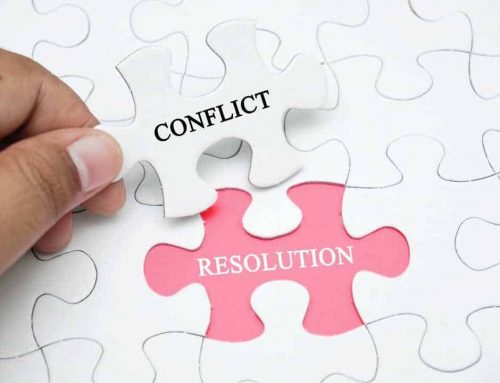How To Use Conflict Resolution Strategies To Solve Your Legal Problems
Sometimes conflict arises that’s unavoidable and difficult to resolve. The majority of the time serious conflicts are very difficult to resolve without a mediator present. Despite the difficulties it’s imperative we resolve conflicts – particularly in a working environment – or it can cause serious issues with both the business and the professional and personal lives of employees.
Here’s how to use conflict resolution strategies to solve your legal problems…
What Is Conflict Resolution?
Conflict resolution is the process of negotiating and reconciling any problems, creating an equal settlement for both parties. The process can be both informal or formal depending on the issue at hand, and occurs between two or more parties.
It is important to consider some strategies to put in place to prevent and help solve conflict within the workplace, both when it comes to business to business interactions and business to customer interactions, as well as inter-organisation conflict that occurs between staff members.
What Issues Cause Conflict?
If you are a person in power, such as a supervisor in your business, or a landlord, it is vital that you can reflect and understand some of the issues that may lead to conflict. Often conflict is caused due to one of the following reasons:
- Lack of communication/trust
- Bullying, discrimination or harassment
- Limited or no equal opportunities
- Unfair treatment
- Personality clashes
- Unrealistic tasks and expectations, including an increase in a workload
Identifying these problems and times they may arise early helps prevent any long-term problems and potential legal issues that you could get caught up in.
That being said, you will need to consider that sometimes these issues aren’t visible and the effects of conflict may cause people to shy away and withdraw from communication. They may also have a lack of interest or motivation towards their given tasks, become less active or productive as a result of the conflict, and increase their sick leave as a means of coping with and/or reacting to the stress of the situation.
What Can I Do To Solve Any Legal Problems?
If you have any issues you may want to refer to your internal help first. A HR department is an example of a useful resource in these situations, as they will directly flatten out any problems concerned.
However, not all companies have a HR department, and individuals certainly don’t have that resource. As a result, it is sometimes easier to get external help. This may include a solicitor, who may use conflict resolution strategies to help solve your problems. There are many strategies you can take on board to solve and prevent conflicts.
Strategy One: Negotiation
Negotiation is a discussion between two or more people to try and achieve an agreement. It avoids any arguments or disputes and tries to maintain a civil relationship between all parties.
You may begin with this strategy depending on your current situation. Negotiation usually begins with preparation, during which you will discuss the problems and what will need to be resolved during the discussion.
The next stage is then discussion itself, where each party puts forward their opinions and their understanding of how their issues can be resolved.
After this stage, each party will clarify what they want to achieve from the discussion, aim for a win-win outcome, and use the agreement to implement a course of action.
If negotiation fails then further strategies may be used to by your solicitor to resolve the conflict…
Strategy Two: Mediation
Mediation is the step up from negotiation allowing a third party (usually your solicitor) to support any conflict between the separate parties. Mediation is effectively a positive way to allow both parties to express how they feel and try and resolve issues amicably with the aid of a third party.
Mediation is a more private way to resolve any problems and pushes for an agreement to be made with the influence of a neutral person. Your solicitor can help by summing up the agreement and vocalising any disagreements you may have to get the win-win outcome.
Some solicitors have now started training to become mediators, allowing them to settle disagreements themselves without having to gain external help. Although, the mediator doesn’t have any power over the outcome, they are a powerful force to help you achieve the outcome you need.
Strategy Three: Arbitration
When mediation doesn’t work arbitration is usually the next step. A third party is used to act as a judge, making decisions to reach an agreement and settle the case for the parties. You will be more engaged in the discussion as the decision at the end cannot be appealed and is final.
You may choose to have your solicitor present with you, as they can support you in getting your point across.
Strategy Four: Litigation
Litigation is the final strategy used to resolve conflict. It is a process involving both parties going to court, where a judge will formally decide what the outcome should be.
It is the most common form of conflict resolution if problems are extremely and cannot be solved through other methods. Your solicitor will play a big part in litigation and will actively dominate your court case to put forward your point of view.
Seeking Advice And Support
When you are involved in conflict, whether it be at the workplace or at home, it is important to seek the correct help. We can support you in any business, landlord or personal conflicts and provide a simple and clear solution to get the result you want. Get in touch to speak to our experts…




